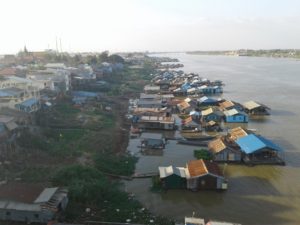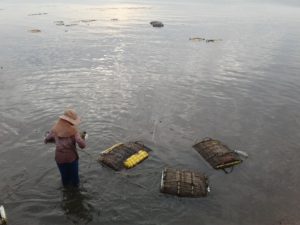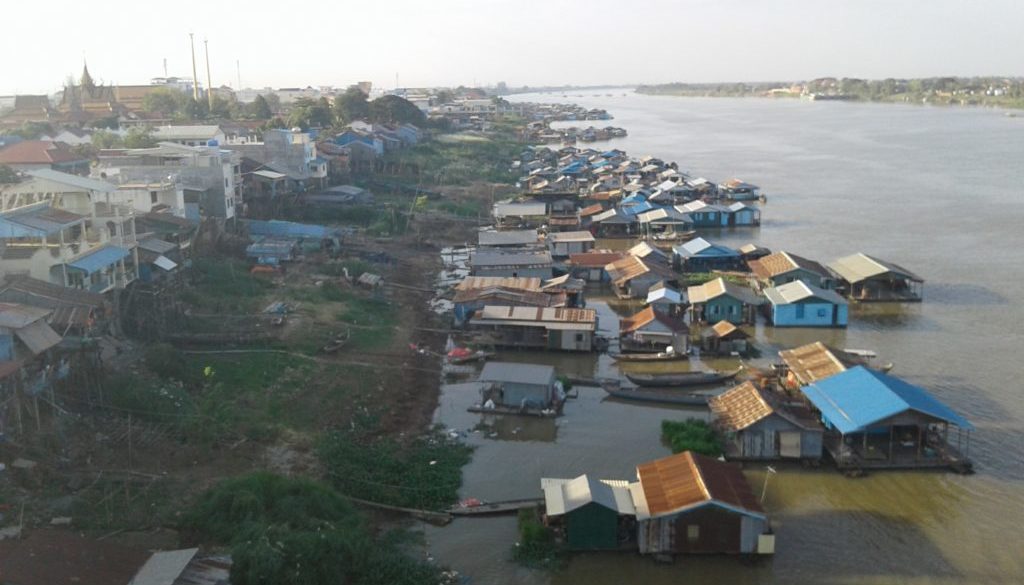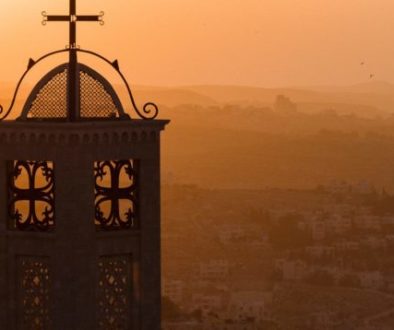Surprises in Cambodia: team reflections #4

Several days ago, as I was preparing for a workshop session that I would be facilitating on the Khmer Pastors’ retreat, Liz reminded me to leave room to be surprised. She was right. The Holy Spirit so often surprises me in the midst of the mundane, and I operate best when I assume a posture of openness and flexibility to those surprises.
And so, on my final day in Phnom Penh, I sat in Brown’s Coffee (basically the Cambodian Northside Social) and reflected on my time, making special note of the ways God had surprised me. I wanted to share a few of these surprises with the Resto community that has so faithfully prayed for us. And as you read, who knows? Perhaps God will surprise you too – with a gentle nudge to pray for Cambodia, with a desire for greater involvement in outreach, or with a word or image that particularly speaks to your life here in Arlington.
Surprise 1: Loving Cambodia. I have traveled widely, and I am always interested in experiencing new places and cultures. I expected the same from Cambodia: interest, novelty, enjoyment. But instead, I fell in love. Before I even stepped on the plane, as I sifted through the English-Khmer Bible to prepare materials for the trip, the beautiful script resonated deeply with me. With Google Translate as my linguistic assistant, I began decoding numerals, days of the week, and punctuation. Did you know that Khmer is not a tonal language? That it’s derived from Sanscrit and Pali (the sacred language of Theravada Buddhism)? That the main row of characters are the consonants, and the little notations above and below are the vowel sounds? That there are no spaces between words? Like this:
ការអធិស្ឋានល្ងាច
That’s Khmer for evening prayer. Beautiful, right?
 My love for Cambodia started with its script and continued through Phnom Penh and Kep. Walking the vibrant, friendly streets; riding tuk-tuks (moto taxis) around town; watching people grill squid and chip ice and boil cockles in the market; eating glutinous sesame rice cooked over coals in banana peels; women waist-deep in the ocean pulling in their crab traps; monkeys crossing the streets; strangely translated restaurant names (“The Slimming Foods and Puppies House”); I loved it all. I was surprised. God gave me joy where I expected mere interest.
My love for Cambodia started with its script and continued through Phnom Penh and Kep. Walking the vibrant, friendly streets; riding tuk-tuks (moto taxis) around town; watching people grill squid and chip ice and boil cockles in the market; eating glutinous sesame rice cooked over coals in banana peels; women waist-deep in the ocean pulling in their crab traps; monkeys crossing the streets; strangely translated restaurant names (“The Slimming Foods and Puppies House”); I loved it all. I was surprised. God gave me joy where I expected mere interest.
Surprise 2: God speaks loudly in silence. For the first part of our trip, we supported a team from Christ Church Austin as they conducted a silent retreat for members of the international congregation of the Anglican church in Phnom Penh (Church of Christ Our Peace). It is a strange thing to facilitate a silent retreat; there is no verbal feedback mechanism by which you can evaluate people’s level of engagement with the material. As we moved quietly behind the scenes – arranging meals, setting up tables, preparing the liturgy – the participants silently disappeared to who knows where, doing who knows what.
On the final morning, the retreatants broke their silence with a 1-2 minute reflection on what they had experienced. Each person had received a helpful image, word, scripture, or answer from God. One man, an IT consultant, had composed a stunning poem about the strength of God’s goodness. One woman, a burned-out aid worker, had been reassured of God’s fatherly care by the sight of a baby monkey on its father’s back. Another woman described lying on the roof of our hotel under the stars one night, singing praises to the heavens. Others described powerful moments of healing and hope and comfort.
God speaks in silence. He fills whatever empty spaces we create for him. He comes to us in our rest and our surrender.
Surprise 3: Long-term, gradual, incremental work does add up! So often, I am hardened and skeptical about good work being done in the world. I know how complex global problems are and how fraught with setbacks and unintended consequences their solutions can be. I begin to doubt that sustainable transformation is really possible. And yet that is precisely the story of International Justice Mission (IJM) in Cambodia, where they have combatted sex trafficking for over a decade. Again and again, I heard people talk about the remarkable transformation that IJM has brought to Cambodia. Though sex trafficking still exists, it’s now an acknowledged societal problem, one that the Cambodian government, police, and courts are increasingly well equipped to tackle on their own. And some communities have been completely transformed. We visited one village that used to be a center of child prostitution and walked down an infamous street once lined with child brothels, where children as young as 5 could be bought and sold. Now, thanks to tireless work by IJM and by Agape International Mission (AIM) over many years, children in that town are being protected, rehabilitated, educated, and equipped for a productive life outside the sex trade. Those brothels are now schools, training centers, churches – places of healing and flourishing. Change is possible. God’s light can penetrate even the darkest corners of humanity.
Surprise 4: Immigrants are immigrants. In that same community where we witnessed such incredible transformation of the child sex trade, we also witnessed the sad reality of immigrant communities everywhere: marginalization and disdain. This community was home to many Vietnamese immigrants, widely mistrusted and disliked by ethnic Khmer. These Vietnamese are highly vulnerable to sex trafficking and exploitative labor practices. They are linguistically isolated from Khmer schools and society. They are poor. They are different.
It was a surreal moment to witness the difficulties facing this immigrant community while hearing news about the increased vulnerability of immigrant communities back home. Immigrants everywhere are vulnerable, and I’m thankful for the protective and healing work that AIM is doing in this particular community. May we all be so courageous, standing with the most vulnerable among us and working tirelessly for their protection.
Surprise 5: Worship and prayer are universal languages. My moments of deepest joy came in worship and prayer. As Liz Gray wrote in our final email update, “God gave us a ‘thin space’ to intercede,” and he truly did. Whether praying blessing in English over rural Khmer pastors; praying for healing with individuals we’d never spoken to on the silent retreat; or praying the words of the liturgy simultaneously in multiple languages; God’s presence in our prayers was palpable and transcended language barriers. Similarly, we were gifted with momentary glimpses of heaven as we sang 1990s praise songs simultaneously, exuberantly, in Khmer and English.
Surprise 6: There is only one Jesus. This should seem obvious. But because I’m interested in other religions and cultures, and because I firmly believe “all truth is God’s truth,” and because I can find redemptive threads in almost any cultural narrative, sometimes I lose sight of the absolute uniqueness of Jesus. I wrote an earlier blog post on one of my many moments realizing this in Cambodia.
Another such moment came during a painful visit to the Killing Fields on our final day. The Killing Fields are one of many designated places of remembrance of the tragedy of Pol Pot’s regime. There, inmates from Tuol Sleng prison (a place of horrific torture which we visited earlier in our trip) were brought to be killed and dumped in mass graves. Bits of bone and fragments of clothing still litter the ground, brought to the surface with every rain. The earth still takes the shape of what were once mass graves, rising and falling in unnatural mounds. Several massive trees of significance are marked: the tree against which children were killed, and the tree from which loudspeakers were hung to blare revolutionary music to cover the screams.
Along the path through the fields is another tree, dedicated by Buddhist monks several years ago. It is just a young sapling, protected by a fence but drooping sadly nonetheless, bearing a sign: “Tree of Hope and Peace.” It was at this tree that I had another moment of gratitude for the uniqueness of Jesus. This little sapling of hope and peace looked so flimsy and ineffective against the monstrous trees of torture nearby. But Jesus himself is our hope and peace. Not a flimsy, symbolic, wishful-thinking sort of hope and peace, but a robust, embodied one. Because he lived and suffered as a human like us, he is compassionately with us in our pain. He does not explain away the pain of existence or seek to escape it, as Buddhism teaches; he fully embraces it in his suffering, dying, human body. And because he rose again, we have a confident assurance that there is powerful healing, redemption, and restoration waiting in the wings just beyond our pain.
As I stood there, I remembered another tree of hope and peace from Revelation 22:
“Then the angel showed me the river of the water of life, bright as crystal, flowing from the throne of God and of the Lamb through the middle of the street of the city; also, on either side of the river, the tree of life . . .. The leaves of the tree were for the healing of the nations. No longer will there be anything accursed, but the throne of God and of the Lamb will be in it, and his servants will worship him. They will see his face, and his name will be on their foreheads. And night will be no more. They will need no light of lamp or sun, for the Lord God will be their light, and they will reign forever and ever.”
And in the midst of a place of enormous suffering and deep darkness, with a hopelessly inept tree before me, I prayed the only thing I could think to pray, echoing some of the last words of that same chapter of Revelation: Come, Lord Jesus!


February 7, 2017 @ 10:31 am
Oh Amy, thank you. For your poetic, tender seeing. Our community is richer with your prophetic eyes.